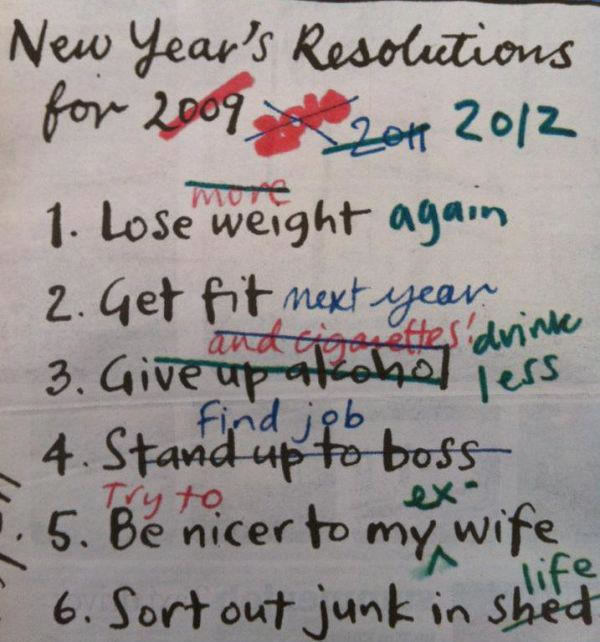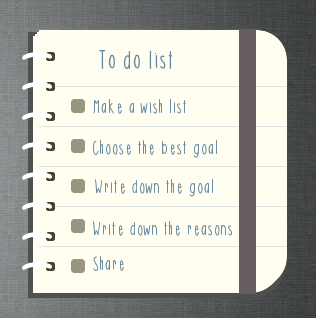As the holidays end and we recover from the festivities, we make ourselves promises. We make all sorts of promises from the most infamous of losing weight to somewhat common ones of enjoying life more to the very rare of doing something for others. And, if you are anything like most people, you make promises to yourself that you simply don’t stick to. I actually see this plain as day at the gym where the first few weeks of January are packed with new gym members, but three weeks in, you watch the numbers dwindle. At first it might be the inclement weather, but the numbers never rebound.
This is because people tend to make promises, not plans.
It’s proven over and over and over again that we need to make these plans to achieve our dreams. It’s one thing to say “I want to be more organised” or “I want to keep up on the literature in my field” or even point out something you want to improve. There are dozens (or more) ways that you can bring it to the forefront of your brain from leaving sticky notes to photo boards where you put your dreams, but what good does that do if you don’t actually make that change?
So, let’s take those ideas and turn them into actionables — that is the challenge. It’s the first week real week of the year back at work, all traces of the celebration of the parties are past — except perhaps the guilt of how much sugar you ate to get rid of every last cookie before your resolution of “lose weight” hit. And now, you’re huddled in the living room warding off the cold with mugs of tea when you’d rather have hot chocolate. It’s the perfect time to get to work on the first step: making a plan and setting up your motivation.
Setting a plan of action
As we know from the articles above, we need a solid plan. We need something that we will be able to work with to break our bad habits and instil good ones. So, the first thing you do is write down your wishlist. The second thing you do is choose the one thing on that list you really, really want to change.
Choose the one that would have the most benefit to you. For example, if you’re anything like most scientists, you’ll have things on your list like keeping up the literature to getting better results. OK, so pretty much anything having to do with work (Are we all workaholics?) to not being workaholics and spending more quality time with family and friends. What will benefit you the most depends on where you are at right now in life. Perhaps you’re at the edge of burnout and you could use more time away from the lab and computer, so you’d choose “time with friends and family”. Perhaps you realise that you’d get more done if you could get organised and stay that way.
You’re a scientist. Take an analytical look at things and decide what will benefit you the most right now.
Why now, not the long run? Because we are still animals and human nature will eventually take over to thwart our plans. We may be able to rationalise the long run, but we have less of a chance of sticking with it. In my case, it’s “lose weight” because I know that if I can lose this stubborn weight, I’ll feel better physically, have more energy, and be less likely to get sick. I’ll be able to do more with my life, including work and friends and family.
Now, you’re going to write down your goal, followed by your reasons. Make it as tangible as you can. You want to tap into the emotions as well as logic as to why behind it. We listen better when both pathos and ethos are used, but not one or the other, so write a few reasons in each category.
Now, share it! Sharing your goals and reasons with your community, friends, and family helps you find the people who will support you through the process. You’ll find friends and allies with the ground breaking ahead. That includes me! I’d love to see what all of you have planned to do this coming year and why.
Come back tomorrow for the next day of the challenge!









